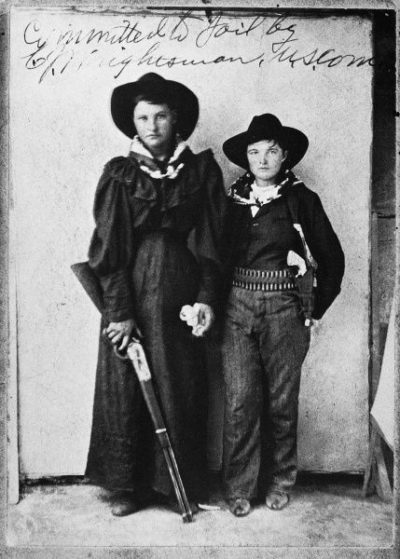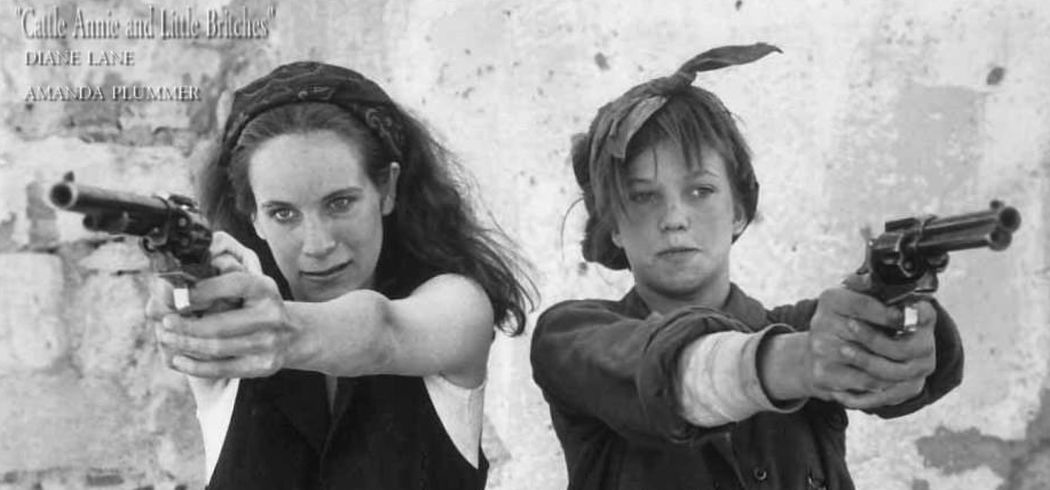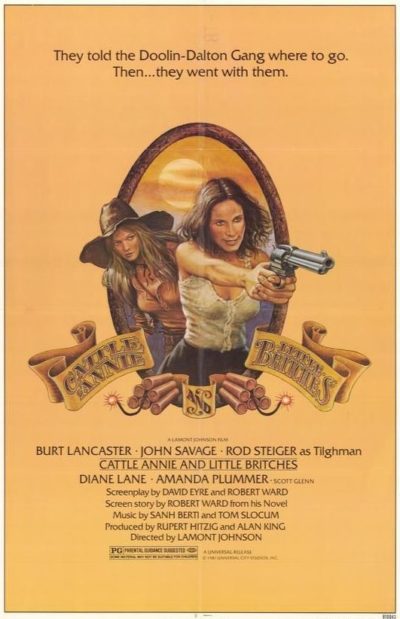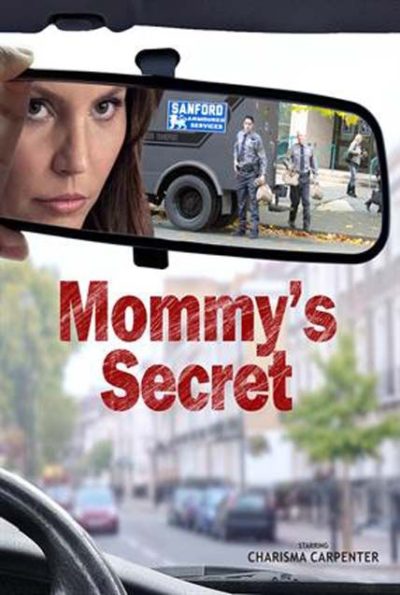★★★
“Diamonds are eight girls’ best friend.”
 I have not seen any of the entries on the male side of the Ocean’s franchise, so can’t say how this compares. Maybe it would have helped – I sense there were efforts to tie them together, with a pic of George Clooney (whom I assume played the late brother of Bullock’s character). Maybe it would have hindered – even with my ignorance of the series, the heist movie we get here seems more than slightly familiar. The obvious touchstone here is the gender reversal of Ghostbusters, though while that was a reboot of the franchise, this is just another entry. Female-led, to be sure, but part of the universe, rather than writing over it. Perhaps that explains why this didn’t receive a fraction of the backlash; the lack of any significant, pre-existing rabid Ocean’s fanbase is perhaps also a factor.
I have not seen any of the entries on the male side of the Ocean’s franchise, so can’t say how this compares. Maybe it would have helped – I sense there were efforts to tie them together, with a pic of George Clooney (whom I assume played the late brother of Bullock’s character). Maybe it would have hindered – even with my ignorance of the series, the heist movie we get here seems more than slightly familiar. The obvious touchstone here is the gender reversal of Ghostbusters, though while that was a reboot of the franchise, this is just another entry. Female-led, to be sure, but part of the universe, rather than writing over it. Perhaps that explains why this didn’t receive a fraction of the backlash; the lack of any significant, pre-existing rabid Ocean’s fanbase is perhaps also a factor.
And, having watched this, I’m not exactly inspired to fill in the blanks in my prior knowledge. This is unquestionably competent, even reaching the level of well-made on occasion – yet is entirely bland and completely forgettable. Maybe that explains the lack of backlash; no-one could be bothered. After all, there has never been a revolt triggered by vanilla pudding. Debbie Ocean (Bullock) gets out of jail, and along with former criminal associate Lou (Blanchett), puts together a team to steal the legendary Toussaint necklace. Since this is locked in the impenetrable Cartier vaults, the plan involves first getting it brought out for a gala at the New York Metropolitan Museum of Art, using a bankrupt fashion designer (Bonham-Carter) and a patsy to wear it (Hathaway). Then, it’s “just” a case of replacing it with a fake and getting away with the real thing.
I guess this is a “crime procedural,” with the focus on the procedures used by the criminals to commit their misdeeds. As such, you kinda wonder why they bother throwing so many participants into the plot, since there’s not enough time, or apparently, interest, in making them three-dimensional characters. [One is played by “Awkwafina”: I’m not sure which is more cringey, taking inspiration for your name from a crappy brand of bottled water, or spelling it that way] These are more like well-dressed chess pieces – there are points where the heavy branding echoed Sex and the City – being moved around New York to achieve the end-game for Debbie and, to some extent, Lou.
However, it’s during the actual robbery when the film is at its most entertaining, as we get to watch the scheme unfold, reminding me of the old military adage, “No plan survives first contact with the enemy.” Fortunately, it’s an extended sequence, which helps repay the viewer for sitting through the far less interesting stuff both before and after. Again, I don’t know how closely that aspect apes the structure of its predecessors; whether or not it does, what seems a fairly lazy approach to its script is a bit disappointing. I was adequately amused. Definitely no less, but no more either.
Dir: Gary Ross
Star: Sandra Bullock, Cate Blanchett, Anne Hathaway, Helena Bonham Carter





 There’s something satisfyingly circular about the story of Cattle Annie and Little Britches. Two teenage girls, inspired by the questionably accurate literary exploits of Western outlaw derring-do, leave their homes and families to join those outlaws. They end up becoming the stuff of these same legends themselves, with their story being turned into a Hollywood movie (see below). Art imitating life imitating art. Given this, discovering the truth behind the myth is almost impossible, with sources telling different versions, and often contradicting each other. As such, take what follows as a best guess…
There’s something satisfyingly circular about the story of Cattle Annie and Little Britches. Two teenage girls, inspired by the questionably accurate literary exploits of Western outlaw derring-do, leave their homes and families to join those outlaws. They end up becoming the stuff of these same legends themselves, with their story being turned into a Hollywood movie (see below). Art imitating life imitating art. Given this, discovering the truth behind the myth is almost impossible, with sources telling different versions, and often contradicting each other. As such, take what follows as a best guess…
 For example, rather than being born and brought up in Oklahoma, the duo are portrayed as making their way out to California to seek their fortune, when they’re forcibly detoured to Guthrie, OK, There, they encounter Bill Doolin (Lancaster) when he and his gang visit the town. Annie falls for gang member Bittercreek Newcomb (John Savage) and they end up being taken by him to the gang’s hideout. Their knowledge of the Doolin Gang is entirely based on the embellished stories they’ve heard about them, and they’re disappointing to find reality comes up short.
For example, rather than being born and brought up in Oklahoma, the duo are portrayed as making their way out to California to seek their fortune, when they’re forcibly detoured to Guthrie, OK, There, they encounter Bill Doolin (Lancaster) when he and his gang visit the town. Annie falls for gang member Bittercreek Newcomb (John Savage) and they end up being taken by him to the gang’s hideout. Their knowledge of the Doolin Gang is entirely based on the embellished stories they’ve heard about them, and they’re disappointing to find reality comes up short. This feels like a low-budget project in many ways, but manages to punch above its weight, in part due to an impressive supporting cast. While Lou Diamond Phillips, Danny Trejo and Steven Bauer are nowhere near as important as their names on the cover might suggest, their presence provide a solid foundation on which the less well-known members of the cast can build. In particular, Danay García as Loca; having bailed on Fear the Walking Dead after about two episodes, I wasn’t aware of her, but on the basis of this, she’s a name on whom we’ll be keeping an eye.
This feels like a low-budget project in many ways, but manages to punch above its weight, in part due to an impressive supporting cast. While Lou Diamond Phillips, Danny Trejo and Steven Bauer are nowhere near as important as their names on the cover might suggest, their presence provide a solid foundation on which the less well-known members of the cast can build. In particular, Danay García as Loca; having bailed on Fear the Walking Dead after about two episodes, I wasn’t aware of her, but on the basis of this, she’s a name on whom we’ll be keeping an eye. ★★★½
★★★½ If she were the only candidate, this might end up being a bit of a borderline entry, but over the 24 episodes in the two series (there’s another five-episode arc I haven’t seen, Roberta’s Blood Trail, which came out in 2010), Revy is joined by a number of other, morally ambiguous women, all of whom are more than comfortable with firearms:
If she were the only candidate, this might end up being a bit of a borderline entry, but over the 24 episodes in the two series (there’s another five-episode arc I haven’t seen, Roberta’s Blood Trail, which came out in 2010), Revy is joined by a number of other, morally ambiguous women, all of whom are more than comfortable with firearms:
 This low-key Lifetime movie stars Carpenter as a literal soccer mom, Anne Harding, right down to the minivan she drives, taking daughter Denise (Grey) to her practice. Denise is a hot prospect, with college scholarships beckoning. However, life for the rest of the family is not so smooth. Anne lost her husband and is in financial difficulties, mostly because of the never-ending gambling debts run up by her other child, Kyle (DiMarco) to local thug Quinlan (Mitchell). Anne has tried to help, only to find herself robbing banks on behalf of the boss. It helps that she wears a fake beard and mustache, so the police are looking for completely the wrong gender. But it takes its toll on an increasingly-twitchy Anne, with Denise eventually putting together the pieces to realize her mother is responsible for the recent crime spree.
This low-key Lifetime movie stars Carpenter as a literal soccer mom, Anne Harding, right down to the minivan she drives, taking daughter Denise (Grey) to her practice. Denise is a hot prospect, with college scholarships beckoning. However, life for the rest of the family is not so smooth. Anne lost her husband and is in financial difficulties, mostly because of the never-ending gambling debts run up by her other child, Kyle (DiMarco) to local thug Quinlan (Mitchell). Anne has tried to help, only to find herself robbing banks on behalf of the boss. It helps that she wears a fake beard and mustache, so the police are looking for completely the wrong gender. But it takes its toll on an increasingly-twitchy Anne, with Denise eventually putting together the pieces to realize her mother is responsible for the recent crime spree. Stylistically and in terms of its general tone and vision, this second volume of the author’s A Murder in the Mountains mystery series, set in contemporary West Virginia, has much in common with the first book, Miranda Warning. It’s also set in the fictional small town of Buckneck (near real-life Point Pleasant, in west-central WV near the Ohio River), and a number of the characters from the first book are here as well, especially protagonist Tess Spencer and the family she married into. We have the same leavening of humor, the same realistic characterization, and the same affectionate evocation of modern mountain life.
Stylistically and in terms of its general tone and vision, this second volume of the author’s A Murder in the Mountains mystery series, set in contemporary West Virginia, has much in common with the first book, Miranda Warning. It’s also set in the fictional small town of Buckneck (near real-life Point Pleasant, in west-central WV near the Ohio River), and a number of the characters from the first book are here as well, especially protagonist Tess Spencer and the family she married into. We have the same leavening of humor, the same realistic characterization, and the same affectionate evocation of modern mountain life. It’s hard to believe a film rated two stars exceeded expectations, but when I saw this had scored just 1.7 out of ten on the IMDb, I was braced for something much worse. I mean, cross off the friends of the cast and crew who scored it a “10”, and 72% of voters have given it the lowest mark possible. Make no mistake, this isn’t great. It’s not even good. But this is not quite as irredeemably bad as that score would imply.
It’s hard to believe a film rated two stars exceeded expectations, but when I saw this had scored just 1.7 out of ten on the IMDb, I was braced for something much worse. I mean, cross off the friends of the cast and crew who scored it a “10”, and 72% of voters have given it the lowest mark possible. Make no mistake, this isn’t great. It’s not even good. But this is not quite as irredeemably bad as that score would imply. Small world. Well, small-ish. I used to work for the same online media company as one of the scriptwriters of this, though our paths there never crossed in any meaningful sense. That’s probably about as interesting a factoid i.e. “not very”, as this film. Indeed, outside of some gratuitous strip-club breasts, it feels like it could have strayed in from a slow weekend on Hallmark. Battered wife Lindsay (Ladd) teams up with longtime stripper friend Nicole (Moore), and commit a string of armed robberies around their local area in Connecticut, their identities hidden with Halloween masks and voice-changers. They’re building up towards a big score, which will involve relieving Lindsay’s abusive husband, Seth (DeNucci) of a crisp $1.8 million dollars in cash. But increasingly, sniffing around the robberies is Detective Broza (Sizemore), a city cop who has recently been transferred to the town: Nicole starts a relationship with him, ostensibly to see how the investigation is going. But is that her real motive?
Small world. Well, small-ish. I used to work for the same online media company as one of the scriptwriters of this, though our paths there never crossed in any meaningful sense. That’s probably about as interesting a factoid i.e. “not very”, as this film. Indeed, outside of some gratuitous strip-club breasts, it feels like it could have strayed in from a slow weekend on Hallmark. Battered wife Lindsay (Ladd) teams up with longtime stripper friend Nicole (Moore), and commit a string of armed robberies around their local area in Connecticut, their identities hidden with Halloween masks and voice-changers. They’re building up towards a big score, which will involve relieving Lindsay’s abusive husband, Seth (DeNucci) of a crisp $1.8 million dollars in cash. But increasingly, sniffing around the robberies is Detective Broza (Sizemore), a city cop who has recently been transferred to the town: Nicole starts a relationship with him, ostensibly to see how the investigation is going. But is that her real motive? Despite the distinctly retro feel of the poster, intro and much of the music, this is very much a contemporary affair. Mary (Henson) is an enforcer working for Benny (Glover): at one point, she was in a relationship with his son, Tom (Brown), and he still wants to continue it. During one hit on a debtor, she finds the target’s young son, Danny (Winston), obliviously playing video-games in his bedroom. Struck by guilt, she leaves him alone, and keeps an eye on the kid thereafter. A year later, she rescues him from the abusive drug dealer who has “adopted” Danny, but the resulting bloodbath is a big problem. For the dealer in question worked for Benny’s biggest rival, who is not happy about the removal and demands Benny find the culprit. Mary, who was already fed up and wanting out of her career, has to decide exactly where her loyalties lie.
Despite the distinctly retro feel of the poster, intro and much of the music, this is very much a contemporary affair. Mary (Henson) is an enforcer working for Benny (Glover): at one point, she was in a relationship with his son, Tom (Brown), and he still wants to continue it. During one hit on a debtor, she finds the target’s young son, Danny (Winston), obliviously playing video-games in his bedroom. Struck by guilt, she leaves him alone, and keeps an eye on the kid thereafter. A year later, she rescues him from the abusive drug dealer who has “adopted” Danny, but the resulting bloodbath is a big problem. For the dealer in question worked for Benny’s biggest rival, who is not happy about the removal and demands Benny find the culprit. Mary, who was already fed up and wanting out of her career, has to decide exactly where her loyalties lie.